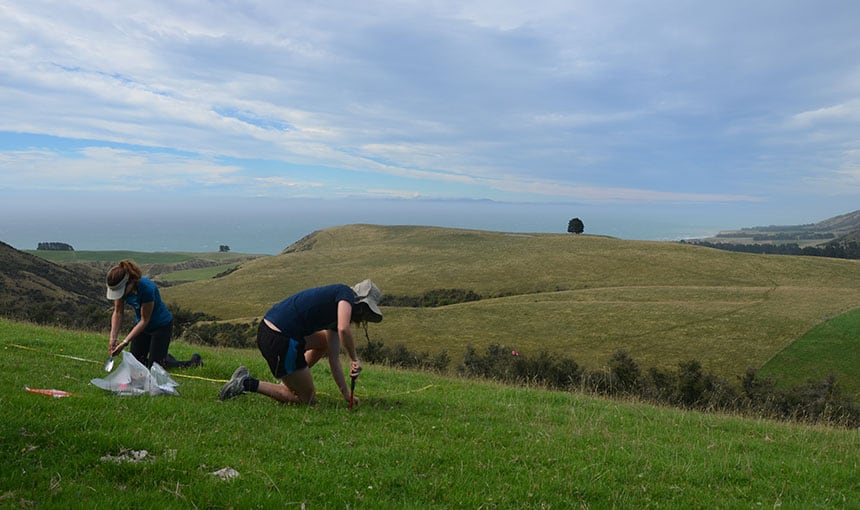The tea bags are buried beneath different kinds of vegetation – pasture, forest, regenerating native scrub and pine trees – then dug up three months later. Researchers re-weigh the teabags, calculating how much tea decomposed which illustrates how fast the soil is decomposing. This is important in terms of climate change because faster decomposition means more carbon is being released into the atmosphere.
The study is one way the Challenge is exploring how ecosystems can be made more resilient, feeding into a wider project that aims to enhance native biodiversity in agricultural ecosystems. Exploring how ecosystems can be made more resilient ties into the Challenge’s goal of finding science-based solutions to protect and restore Aotearoa’s natural and primary production environments.
The fieldwork is being overseen by BioHeritage’s Stacey Bryan and feeds into a BioHeritage project led by AUT’s Hannah Buckley and University of Canterbury’s David Norton that aims to enhance native biodiversity in agricultural ecosystems.
If the tea bag pilot is a success, it could become a practical method that farmers could use to measure the amount of carbon being stored on their land, Stacey says.
“By carrying out these pilot trials, we can figure out practical ways of getting good measurements – in this case how quickly soil decomposes organic matter depending on the type of vegetation it’s under. This could ultimately tell farmers which vegetation facilitates the best carbon storage.
“Ultimately, we want to work with farmers and other end-users to find ways of improving biodiversity while at the same time increasing the farm’s value in other ways,” Stacey says.
The project this fieldwork feeds into is a collaboration between multi-disciplinary researchers from Auckland University of Technology, AgResearch and the University of Auckland, together with Beef & Lamb NZ, QEII Trust, Landcare Trusts, MfE, Māori agribusiness and regional councils. Engagement and co-design for the project is facilitated by BioHeritage Strategic Leadership Group member Kevin Collins.
